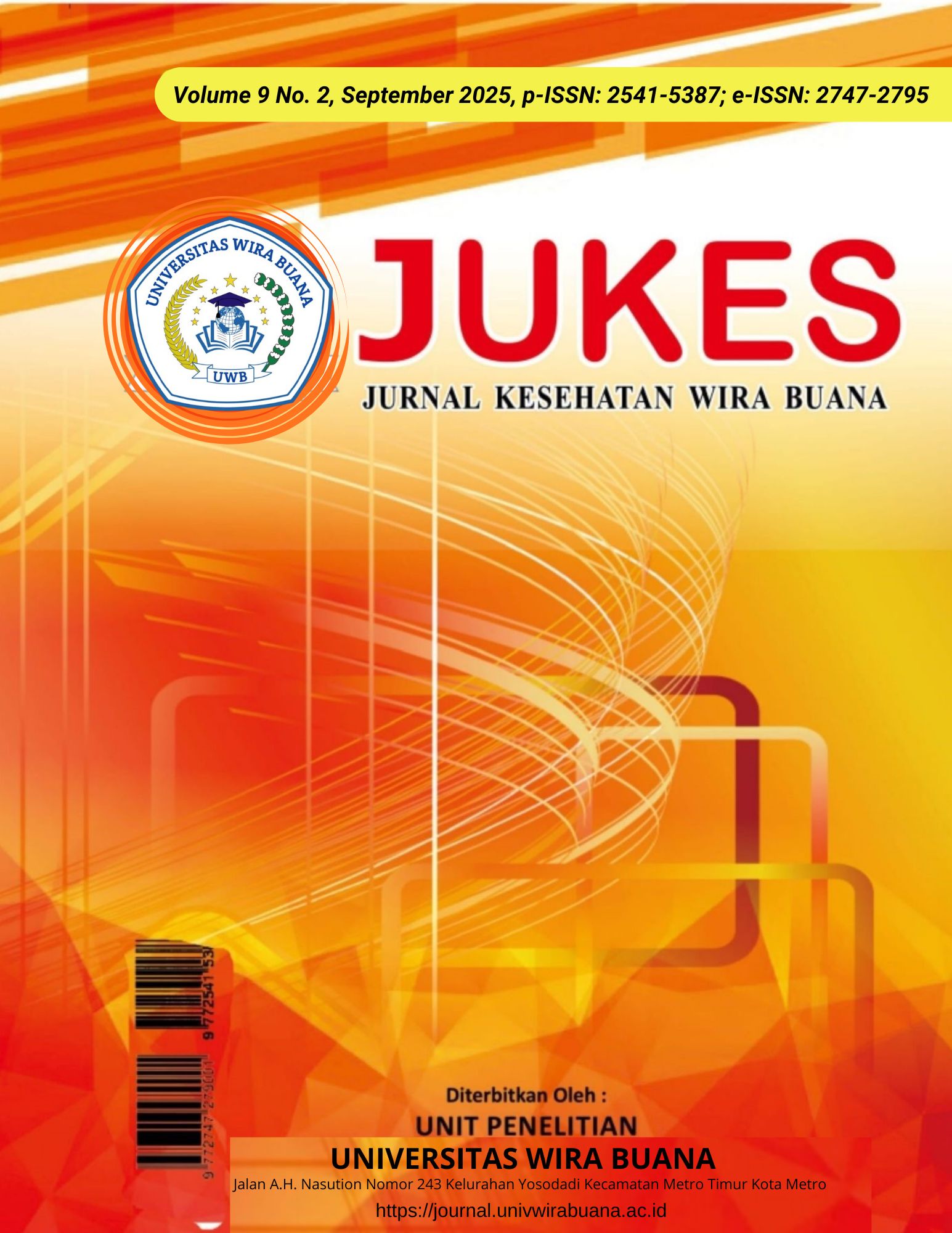THE EFFECT OF HEALTH INFORMATION SYSTEM MANAGEMENT ON THE SPEED OF DETECTION AND REPORTING OF TUBERCULOSIS (TB) CASES
DOI:
https://doi.org/10.55919/jk.v9i2.211Keywords:
: Health Information System, , Information Management, , Tuberculosis, Early Detection, Case ReportingAbstract
Tuberculosis (TB) remains a serious public health issue in Indonesia. Rapid detection of new cases and reporting them to the national system is key to controlling the spread of the disease. The Health Information System (HIS) has great potential to accelerate this process, but its effectiveness is highly dependent on how the system is managed. This study focuses on evaluating the impact of HIS management in primary health care facilities in Metro City. Objective: To examine the impact of HIS management, as measured by system quality, information quality, and user competence, on the speed of TB case detection and reporting. Method: This quantitative study with a cross-sectional approach involved 60 health workers from 15 community health centers in Metro City, selected using purposive sampling. Data were collected through structured questionnaires, medical records, and system logs. Multiple linear regression analysis was used to test the hypothesis. Results: The analysis showed that system quality (β = 0.421; p < 0.05) and user competence (β = 0.389; p < 0.05) had a significant and positive effect on the speed of TB detection and reporting. Conversely, information quality (β = 0.112; p > 0.05) did not show a significant effect. Overall, HIS management contributed 68.7% (R² = 0.687) to the acceleration of this process. Conclusion: System quality and user competence are key factors in optimizing HIS for TB control programs in Metro City. These findings emphasize the importance of investing in technical infrastructure and improving human resource capacity to strengthen TB surveillance





